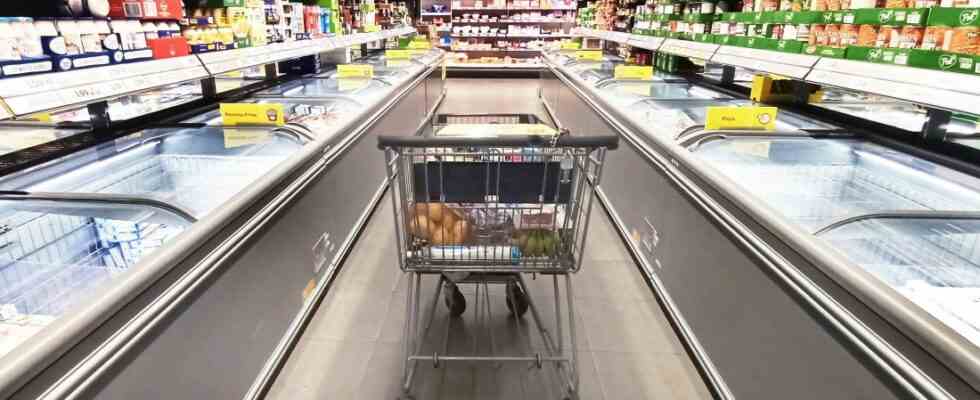In the face of high inflation, more and more people have to watch their money. This has a strong impact on shopping behavior. More and more often, consumers are turning to the cheaper retail brands and leaving the branded items on the shelves.
“The private labels are gaining a noticeable share of the market,” says retail expert Robert Kecskes from the market research company GfK. According to him, the particularly low-priced own-brand offers in the entry-level price segment have grown particularly strongly in the past two months. However, there is a catch: the retail chains’ own brands are also becoming more expensive – and the price increases here have recently been even higher than for branded products.
They are called “Ja”, “Gut & CHEAP”, “Milbona” or “Gut Bio”: The own brands with which the retail chains compete with the brand manufacturers. What once started with a handful of cheap no-name products has now developed into an entire product world. In addition to the inexpensive entry-level brands such as “Ja” from Rewe or “Gut & Billig” from Edeka, with which the supermarket chains want to stand up to the discounters, there are now also many private label offers for higher demands: organic products, veggie and vegan Offers, regional products and premium offers from the gourmet segment. What they all have in common is that they are usually priced below the offers of well-known brand manufacturers. And that they are gaining popularity at the moment.
According to figures from GfK, the market share of brand manufacturers, which was over 59 percent last year, fell to just 56.5 percent in June 2022. An increase in discount campaigns could not change that. The brand manufacturers lost billions in sales as a result. It’s a tough slump for branded companies, as they were among the big winners in the Corona pandemic. At that time, many wanted to treat themselves to something at least in their own four walls in view of the closed restaurants and canceled vacation trips and resorted to expensive branded goods in the supermarkets more often than usual. This gave the manufacturers record sales. But times have changed. “The trend is currently towards entry-level own brands. This is a clear indication of the level of uncertainty among the population,” said Kecskes.
According to the “Consumption Monitor Prices 2022” of the German Retail Association (HDE) and the Cologne Institute for Retail Research (IFH), more than a quarter of people in Germany are now very afraid of not getting by with their money. In the case of people with a net household income of less than 2,000 euros, it is even almost half. People are therefore paying more attention to the price when shopping, resorting to special offers more often, going to the discounter more often than to the supermarket or simply choosing cheaper private labels instead of branded articles. The change is also made easier by the comparatively high reputation that many own brands have acquired in the meantime. According to the “Private Label Monitor 2022”, almost two thirds of consumers see the retail brands as being on par with branded goods in terms of quality.

